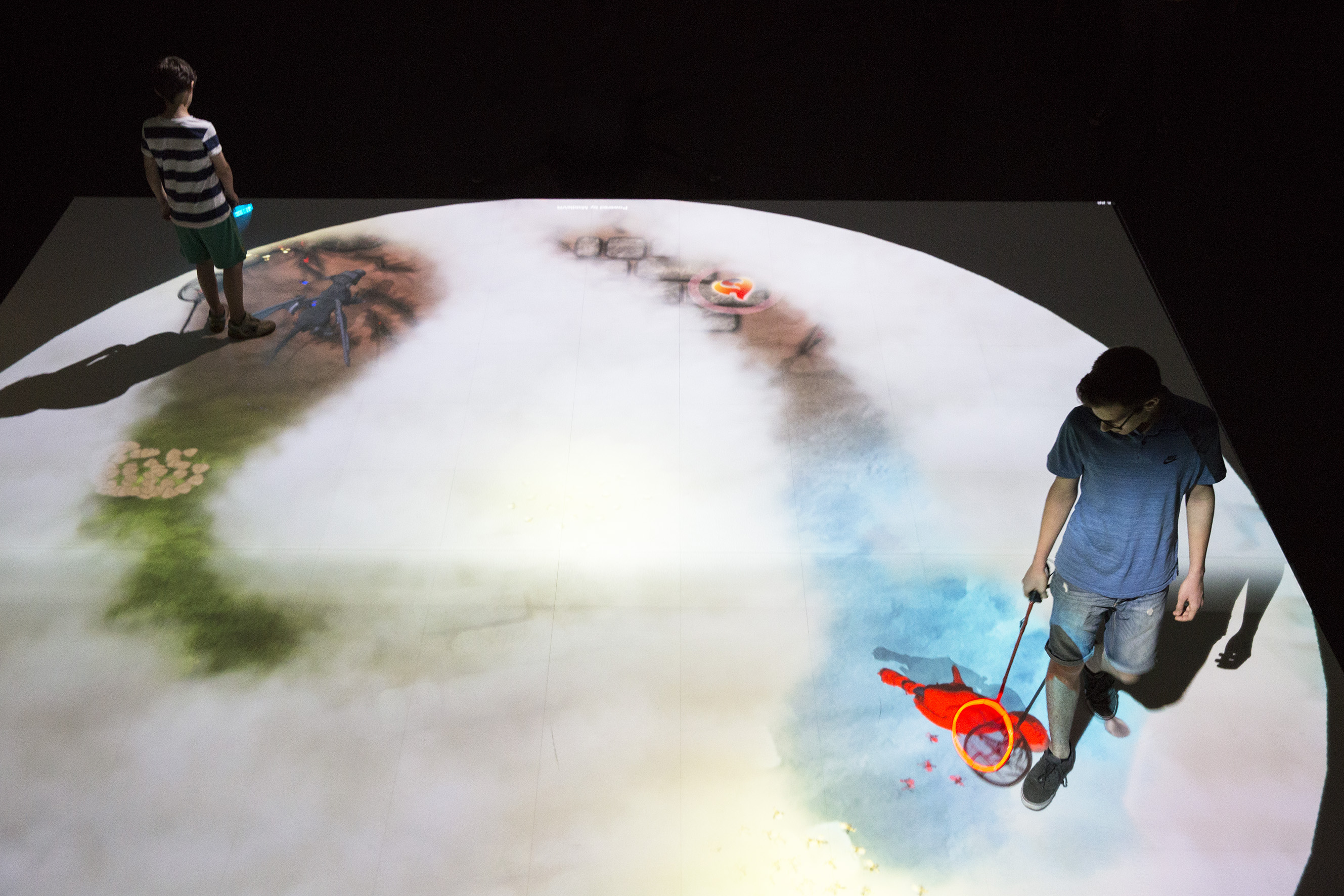Ciera Crowell
Ciera Crowell
Cognitive Systems and Interactive Media Master
July 20th 2016
A brief description of the project:
The game was developed as a part of the IN-AUTISTIC project, which was funded by RecerCaixa 2013. My supervisors, Joan Mora Guiard and Narcis Pares, had begun working with a crew of designers and psychologists to develop the game when I joined the team in 2014. The game, called Lands of Fog, consisted of a large, circular floor projected virtual environment where children would actively explore with a partner and play with interactive features such as mythical creatures and magical objects. It was my responsibility to organize an experimental protocol to test the video game for success in fostering socialization and collaboration among players. We were looking for changes such as the activity level, flexibility, playing style, and number of social acts (requests, responses, initiations) of each child with autism.
In the first set of experiments which were included in the thesis, we were able to test the game with 10 children with autism and 10 typically developed partners. Each child played the video game in three separate sessions, with a separate partner each time. We found increases in the frequency of social acts made by each child with autism, as well as increases in the flexibility and activity level. In addition, we found that the children were collaborating more as they played the system, and that the distance between players decreased through the sessions.

This research has been particularly meaningful for me because I enjoy working with the children, trying to understand their unique perspective and feeling like I can make a positive difference in their lives. Also, when talking with the parents, teachers, and psychologists, you begin to understand how important it is to continue researching intervention solutions, because you are not just offering them the chance to become involved with an ICT research project, but you are offering them hope for a better life.
The project was submitted to the second annual competition for Best Master thesis, which was organized by the Spanish Human Computer Interaction Association (AIPO), an association who works to promote the advances in the field of Human-Computer Interaction. The thesis won first prize, which consists of 350 euro and the registration covered for the XVI Congreso Internacional de Interacción Persona-Ordenador, Interacción 2016, where the winners are invited to come present their work. The awards ceremony will be held in September 15 in Salamanca, Spain as part of the conference. I have also continued with this research project into the beginning of my doctoral work.
My experience as a master student:
I worked hard in the CSIM master, and thoroughly enjoyed the experience. The most rewarding aspects for me were learning about a range of topics which I would have never had the chance to learn about in bachelor degree studies, which typically have a more narrow scope. Also, the hands on work which we took part in helped me to understand and practice the topics which we learned about in class. I think this hands-on component is especially important in technical degrees, because I learn well from experimentation via trial and error. Finally, the rich cultural composition of my CSIM class gave a dynamic feel to group work, as everyone was able to contribute feedback from a different point of view.
